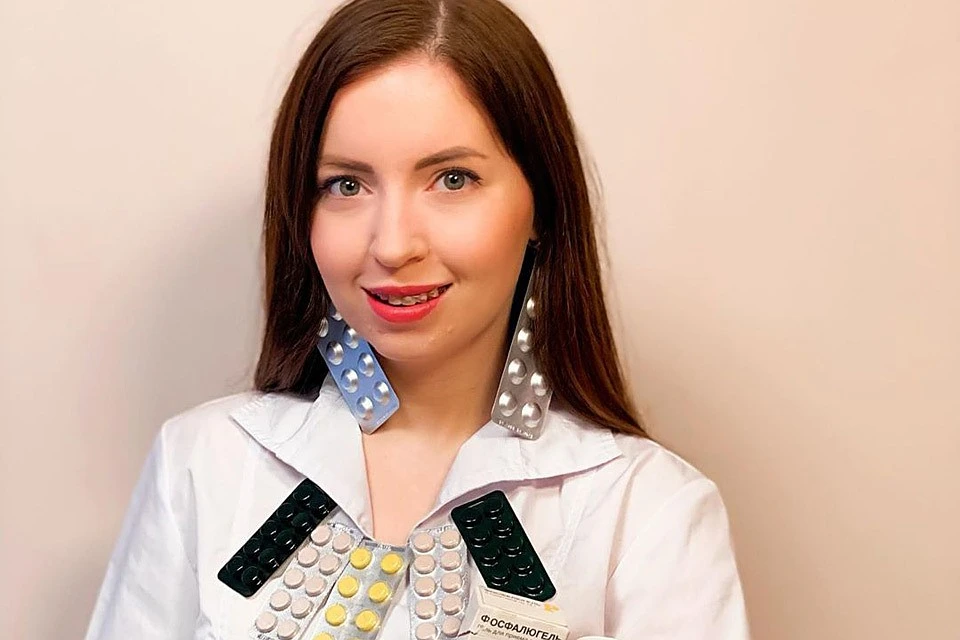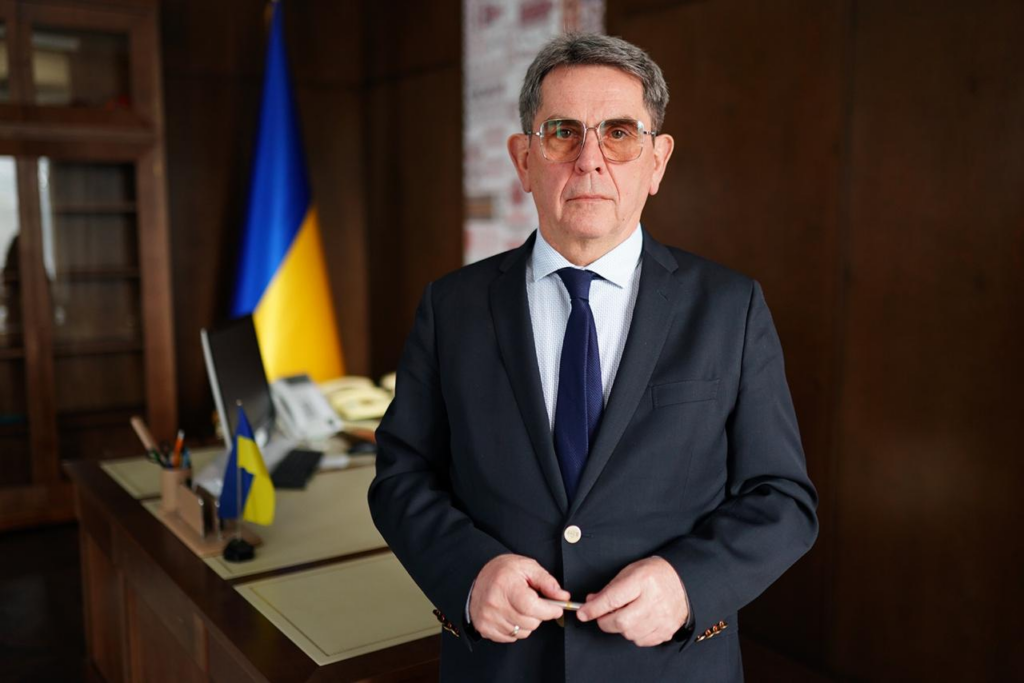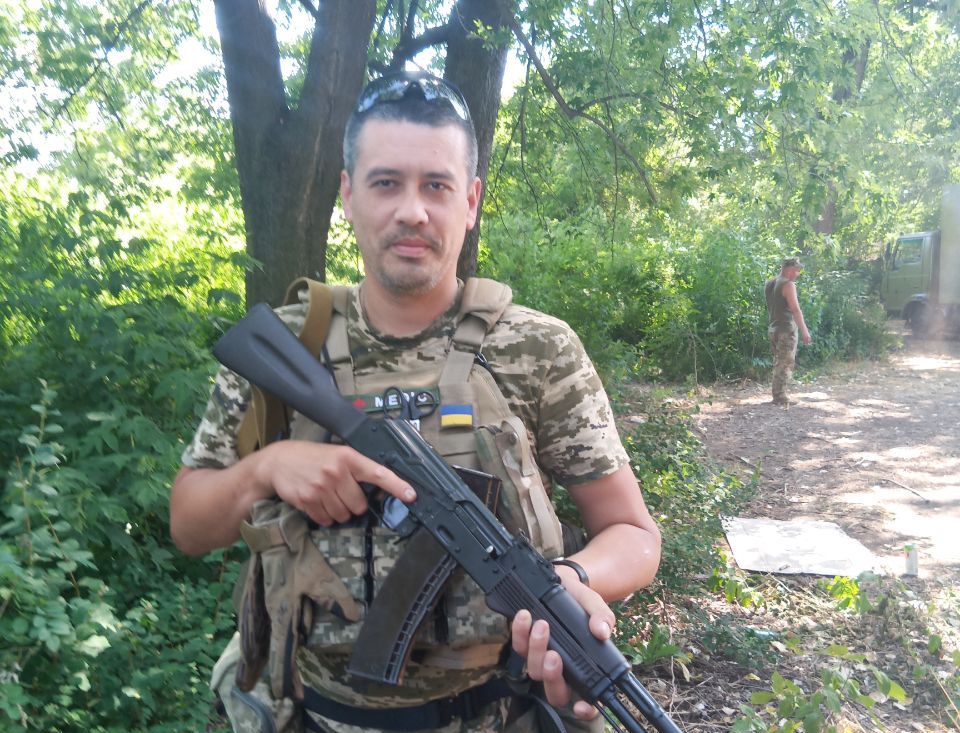
-Ruslan, why did you, a highly qualified neurosurgeon, decide that you needed to go to the AFU, to the front line? Why didn’t you stay in the already relatively calm Kiev, in the hospital?
-Beginning February 24th. I went to work that day at Kyiv City Hospital No. 17. We were on the first line of reception of heavy patients. All the wounded with polytrauma were brought to us. The situation at that time was extremely grave, and it was also scary.
-Why?
-There was no camouflage at the time. The wounded were coming in en masse. There were not enough hands in the operating rooms because doctors had evacuated their families – some to their parents, some abroad.
There are only two hospitals in Kiev with polytrauma departments – our 17th hospital and the BSP. But since the main events were unfolding on the right bank, the wounded were brought to us. The ambulance was running non-stop. I was at work for three or four days.
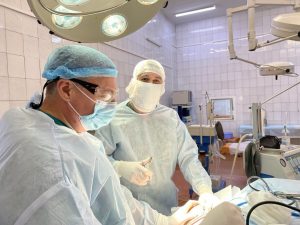
It was also scary because a lot of sabotage groups had been thrown into Kiev. There was street fighting. We were operating on all the tables. And because you are standing under the light, you are a very wonderful target. But you can’t move away from the table either: there is a person in front of you who needs to be saved. And we worked. We slept 2-3 hours a day and worked again.
After the fighting in Kiev itself subsided and Russian troops withdrew from the city, many sabotage groups were caught and neutralized. Among them were saboteurs who came to our emergency room. We had three of them.
When everything gradually quieted down, many people from Kiev evacuated. And our work stopped along with it. We stopped receiving scheduled patients: people had no desire to undergo surgery, they wanted to get away from the war. There was less and less work. The news from the front line was less and less comforting.
I have never been a military man, but I became afraid for my family, for my country, for people.I realized that if I went to serve, it would be very hard for me. But I am a citizen of Ukraine. I love this country. And I will be able to be useful in the war, helping the fighters on the front line.
-How did you get into the AFU? I was told by your colleagues that nowadays it is not so easy to do so. You even have to “make connections”.
-I saw a post on FB by a colleague, whom we know well, that he is now in the AFU. I called him and said: “Take me to your place.” He asked: “Are you sure you want to?” At that time a battalion was just being formed.
He asked me if I had an officer’s rank. I did not have an officer’s rank. I had graduated from university and had passed the military department. But it was liquidated at that time, and I was given only a document stating that I had been trained and had taken the oath. I did not receive a military rank.
I said I didn’t care and I was ready to go private to serve.
He called me the next day and informed me that I needed a military card and to be present at the military enlistment office. Then we met at the enlistment office. I was mobilized in half an hour. I sent the documents to my superiors.
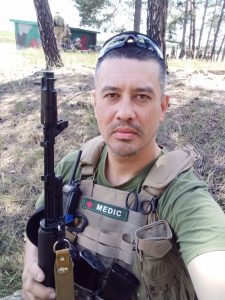
-Letting you off easy?
-No. -I was scolded for a long time because I was short-handed and they didn’t want to let me go. But it was my conscious decision. Within an hour I packed my things and went to the unit.
-How did the family take it?
-It was bad at first. But in the end, my wife accepted my decision. She’s a doctor herself, so she understood.
My service began in the unit: we were uniformed, issued weapons, and we began our direct duties – dealing with the health of the personnel.
-Where are you now? -If it can be said, of course.
-I’m in Donetsk region now, at ground zero. I have been here for more than two months. Unfortunately, we have a limited number of doctors, so there are certain problems with rotation. I’ve been setting up logistics for evacuating fighters and liaising with the local leadership. Maybe that’s why the leadership doesn’t want to rotate me. Or they can’t. They know that I am a fairly highly qualified doctor, and they realize that if we leave the medical instructors here alone without a doctor, at some point a disaster could happen.
-How many wards do you have?
-I am currently the commander of my unit, and I have two subordinates, a medical officer and a driver.
-How many fighters do you three have?
-It’s not predictable. Soldiers perform combat missions, get wounded. Unfortunately, they die.
All chronic diseases worsen in fighters, which they simply did not remember or did not know about in “civilian life”.
And here, given the specific nature of the mission, when you are on the front line in a trench, any illness can disrupt the task of the entire unit. Therefore, being on the first line, at conditional zero, it is important to remember this and evacuate a sick soldier in time. We are also in charge of evacuating the wounded from the battlefield.
-Ruslan, what is the most difficult thing for you as a doctor in war?
-The hardest part? It’s when your brothers get hurt or killed. It’s very hard. It’s not hard to treat, evacuate. I have studied this, studied long enough, have skills and knowledge in polytrauma, in neurosurgery, in related specialties that allow me to provide assistance without involving other specialists.
When you see your brothers being killed… That’s the hardest part.
-What are you lacking the most right now? Hands, medicine, equipment?
-Now we’re fully equipped with everything we need. We have a stock of medicines, dressing materials, my fighters are fully provided with everything. Everyone has a first aid kit, which we collected and reviewed. Now we do not need anything.
-Who is responsible for making sure you have everything you need? MOH, volunteers, medical services of the ZSU?
-This is handled by the medical services of the ZSU and volunteers. But to a greater extent this is volunteer help. Now first aid kits are equipped with hemostatic materials, quality dressings, occlusive dressings, tourniquets, and good quality tourniquets. That is, the level of first aid kits is very high.
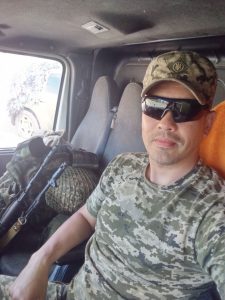
-Aren’t you afraid of losing your qualifications as a neurosurgeon?
-I’m not afraid of losing my qualifications. In addition to treating personnel, I am also involved in counseling, because people come to me from old memories. They call me from all over Ukraine. People who have traveled abroad also call me.
As it turned out, medical care in Ukraine and in Europe differs strikingly. We do not realize this until we encounter medicine abroad.
In addition, I am constantly looking at scientific publications, which are now being produced in sufficient numbers.
-What are your plans for the future? After we win;
-I have many plans for the future. First of all, I want the war to be over. After the war started, a lot of ultra-modern equipment was brought to our hospital, which I will have to learn to work with. For example, we now have an electron-optical transducer with an angiopod, which I have not worked with before. I also want to be additionally qualified in neuroradiology. There are a lot of plans, I will not announce them all. But these are the main steps I see for myself now.
-What was important to you before February 24, and what has become important now? Have your priorities changed?
No. I prioritized family and work. I was a workaholic, and I still am, and I love my family as much as I do. I always adjusted my work to my family’s plans so that I could spend more time with my children: taking them to training and clubs, picking them up from school.
-Was there a day in those six months that you remember most?
-There were shocks when my brothers died. Those were the saddest days, the most memorable. Otherwise, even when you are sitting under mortar fire in a trench, you get used to it.
You get used to the shots, you get used to the “arrivals”. A man gets used to absolutely everything. You can’t get used to death.
There is a perception that a doctor gets used to the fact that patients can die. But that’s not true. If a surgeon gets used to death, he is no longer a doctor, he is a butcher. A normal doctor does not get used to the death of his patients. It takes him a long time to sort out why it happened. Even if you realize that nothing could have been done, it still gnaws at you.
-What’s your dream? -What’s your dream?
-I don’t know… The main task is to win this war. I haven’t seen my family in six months. I dream of the day when there will be a rotation and I will see my wife and children.
Read also: From white coat to pixel. Why Ukrainian doctors are volunteering for the AFU

